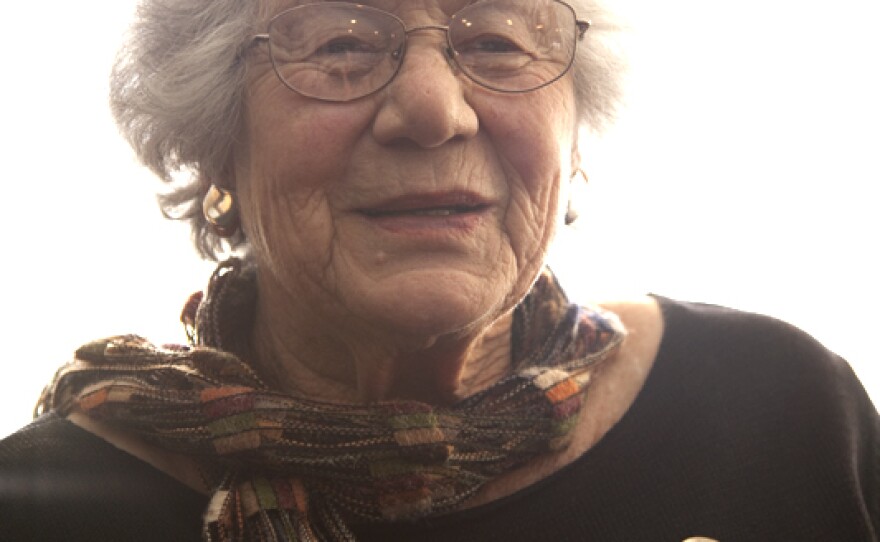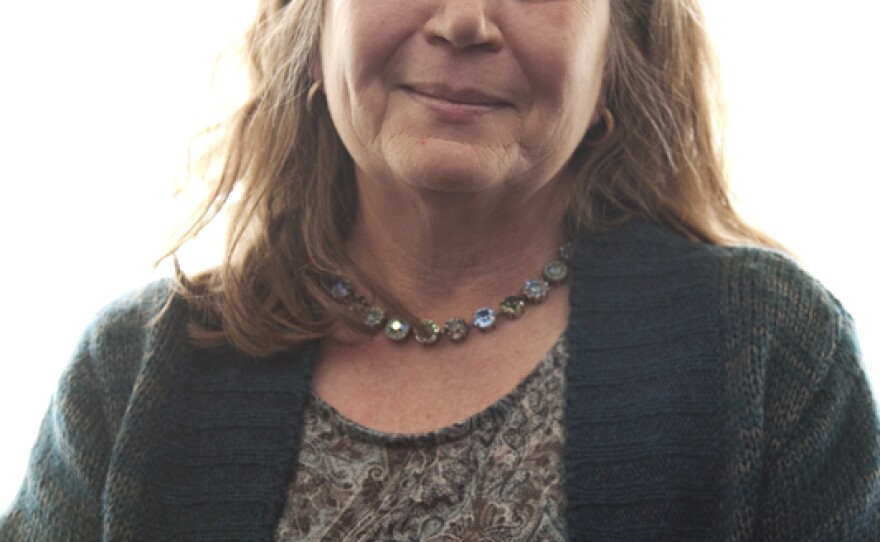Sixty years ago a group of women in Casper whose husbands were always leaving them for long shifts out on the oil patch got together to commiserate and lunch. The group became known as the Geowives - wives of geologists - and it’s celebrating its diamond anniversary this spring. Wyoming Public Radio’s Irina Zhorov attended the Geowives’ monthly luncheon and has this story.
IRINA ZHOROV: Bette Faust is one of the charter members of the Geowives, and a Wyoming native who came to Casper in the 1950s.
BETTE FAUST: I had two little girls and a house and I was active in civic things, I was active in politics, behind the scenes. I was just a typical busy educated housewife.
ZHOROV: She says many of the women who arrived in Casper were educated do-gooders, but this group was envisioned as a strictly social club.
FAUST: We just come and we laugh and we talk and we have fashion shows.
ZHOROV: Our conversation is cut short be the beginning of the day’s program. Yes, a fashion show. A member, who that day is wearing glittery tights, invited the designers and young models to entertain the group.
And Faust is glad, too, because she doesn’t really want to be talking to me, anyway. She’s there to see the girls, as they all call each other.
FAUST: I’m 93 and I’ve been a caregiver for my husband for 14 years. And I’m exhausted. I’m just a shadow of myself, I really am.
ZHOROV: But you’re still active here.
Faust: Yeah, I try.
ZHOROV: Why is that important for you?
FAUST: Oh, I love people, don’t you? I’m a people person.
ZHOROV: As the fashion show starts up the women I’m sitting with joke about picking out an outfit for the upcoming dance they’re planning with the Wyoming Geological Association, the male counterpart to the Geowives. The clothes, made by a young local designer, are sculptural, and, well, perhaps a little riske for some of those present. One flowing gown is white, and a little see-through.
JOANIE DUNLAP: Very interesting…she said she forgot her slip. [laughs]
ZHOROV: After all, the youngest girls there are in their 50s.
NIMI MCCONIGLEY: People think, oh, these are women who lunch. They have fashion shows and they have a good time.
ZHOROV: That’s Nimi McConigley. She arrived in Casper in 1976, from India by way of Singapore. And she hated it. Geowives helped.
MCCONIGLEY: It’s a healthier way than hitting the bar, I think. And it’s certainly cheaper than going to the a psychiatrist if you can meet another woman who’s got a husband in the field and is alone or has lost a husband or has lived through boom and bust, what better support can you get from somebody who’s been on the same journey.
ZHOROV: McConigley sometimes gets frustrated with the exclusively social aspirations of the club, but she says many of the women who arrived in Casper with their husbands, like she did, without knowing anybody, eventually joined the Geowives just to have a place to complain and seek solidarity. It’s a unique kind of sisterhood. Mary McPherson, who joined Geowives 3 years ago, agrees.
MARY MCPHERSON: They all understand about the transferring, the ups and downs, the cyclisity of the industry, you could use the terminology, they understand that, and they’ve just got really great stories about the old days of being out on the wells, perhaps sleeping in cars as their husbands are logging a well and stuff like that.
ZHOROV: Her husband works in the energy industry, but she herself is a geologist, too. In that way, she’s unique.
MCPHERSON: I’ve encountered situations where I’ve been in small towns working in oil fields and been one of the only women that was associated with a property or whatever. Spouses of some of my co-workers they may have been curious about me…[laughs]. Because, you know, there was a time when I was only one of six women earth scientists in all of Chevron USA, so we were an oddity.
ZHOROV: McPherson was only able to join Geowives once she retired. Tuesday afternoon lunches, after all, aren’t ideal for working women. In this way, the group is showing its age. Elizabeth King, who’s been a member since 1975, says it’s hard to attract young members.
LIZ KING: So many of the younger women who come to town are working women. And that’s where our culture has moved.
ZHOROV: She says 20 or 30 years ago membership was over 100. Today, it’s closer to 70, but not everyone is very active. But sisterhood isn’t about quantity, it’s about the strength of the bonds. And everyone agrees those bonds are as special as the girls who form them. For Wyoming Public Radio, I’m Irina Zhorov.













